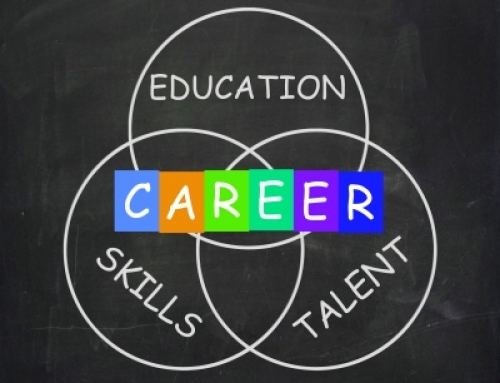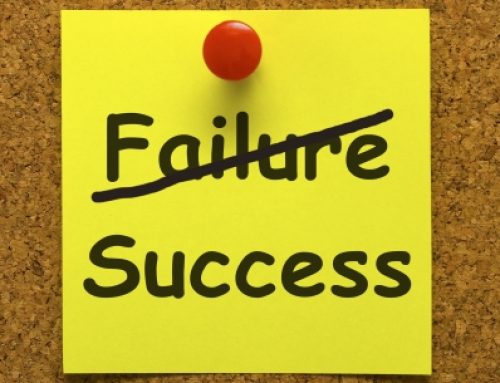- Image courtesy of FreeDigitalPhotos.net
By Khalilah Starks
That’s it! You’ve had enough. You’re under appreciated. Your boss is crazy. The work is boring. You know that you can do better. Or maybe your unemployment has lasted longer than you ever anticipated. Whatever your situation is, you know one thing – it’s time to find a new gig! Finding a job can take forever, but if you take some simple steps, you can cut your job search time significantly.
You can absolutely get that next job quick, fast and in a hurry! Here’s how:
Set Your Goal. I’ll tell you right now, simply stating “a job” as your goal isn’t good enough. It can be tempting when you’re desperate to say, “I just need a job” or “At this point, I’ll take anything.” But, you’ll waste time. Let me illustrate this with a simple driving example. When you jump in your car, you know exactly where you’re going and you take the best route possible to get you there. If you just get in your car and start driving with no clue of your final destination, you end up wasting a lot of gas which is pretty expensive nowadays. With the job search, the gas is your time – and time is money. You need to know exactly what you’re trying to achieve so that you can determine the best route to your next professional chapter. You need to be really specific. What kind of job? In what industry? Do you want to manage people or be an individual contributor?
Tell Everyone That You Know. Today, it’s all about who you know. The quicker you reach out to everyone in your network to let them know that you’re searching for employment, the quicker your job search will advance. Make it easy for your network to help you by providing your specific goal. If you simply say, “I want something in the financial services” you’re making it difficult for them to help you because there are hundreds of jobs in the financial services industry. And, instead of trying to figure it out, they just won’t help you. People are busy, so you have to make it as easy as possible for them to help you. If you’ve been reading my blog, you know that I’m a fan of LinkedIn. So, go ahead, and start reaching out to your contacts or adding contacts if you haven’t done so.
Get a Professionally Written Resume. After looking at thousands of resumes, I can tell you that a large proportion of resumes are terrible which makes perfect sense. Most people haven’t taken a resume writing class. And, many students fail to use their Career Services office to learn the skill before entering the real world of employment. So, unless you have a HR background or strong writing background, it’s quite probable that your resume writing skills are lacking. My recommendation is to invest in yourself and splurge on a professionally written resume with a results guarantee. If you’ve got issues such as employment gaps or lack of experience, a professionally written resume can mask those red flags. You’d be surprised how quickly you can get an interview with a well written resume. There simply aren’t very many well written resumes floating around. So, when HR receives a great resume, it definitely warrants a phone call.
Account For All Time On Your Resume. I know. I just advised you to get your resume professionally written. But, some of you are still going to insist on writing the resume yourself. So, if you decide to do it yourself, remember that it’s easier to find a job when you have a job. And, employment gaps can be the death of a job search. So, fill those holes with entrepreneurship and volunteer activities. Employers respect people who stay busy and continuously hone their skills. And, please, please, please, have a friend in HR critique your resume before you start submitting it to employers.
Customize Your Resume For Every Job Application. Any time you submit a resume to job opening, customize that resume to match the position that you’re applying for. If certain skill and experience requirements are listed, insert those and relevant experiences. You need to do this even if your resume has been professionally written. That professionally written resume is your general resume that you can provide to contacts as you network. However, if you are applying to a specific position that lists skill and experience requirements, customization of your resume is absolutely imperative.
Apply for Jobs That You’re Qualified For. No brainer, right? Wrong. Many people get so desperate that they apply for jobs that they’re overqualified for, thinking that this is a surefire way to get a job. Sorry to burst your bubble, but the person reviewing your resume will see through the desperation and think that if they do hire you, you’ll just bail out at the first opportunity that comes your way. And, if you’re lucky enough to get the job, you’ll experience a sigh of relief in the beginning. But, the reality that you settled and could have done much better if you focused on what you were qualified to do will soon set it. In the end, you weren’t that lucky after all because it’s back to the job search drawing board. Too many of these short employment stints of under-qualified work can significantly delay your opportunity to advance to bigger and better opportunities.
Start Honing Your Interviewing Skills on Day One. Great interviewing takes practice. Many people wait until a day or two before their actual interview to start preparing and end up blowing the opportunity. For most of us, a couple of days of preparation isn’t enough. You can easily prepare for your future interviews right now. Because you’ve been specific with your job goal, you can research the skills and experience that are typically required and prepare examples that you’ll share with recruiters to show your qualifications. It’s a great idea to rehearse your answers to common interview questions out loud. Practice makes perfect!
Be Real With Yourself. If you’ve got issues (i.e. employment gaps, recently fired, job hopping, etc.), a professionally written resume can certainly mask or address those issues well enough to get you the interview, but you still may have some explaining to do. A good HR person will probe deeply into your resume and prior work experience during the interview and uncover your personal employment baggage. This is no problem if you expect it and take time to think about how you will address your issues. Tip – Run your explanation past a few people who you respect professionally and preferably someone that you know with a HR background to get feedback.







Leave A Comment